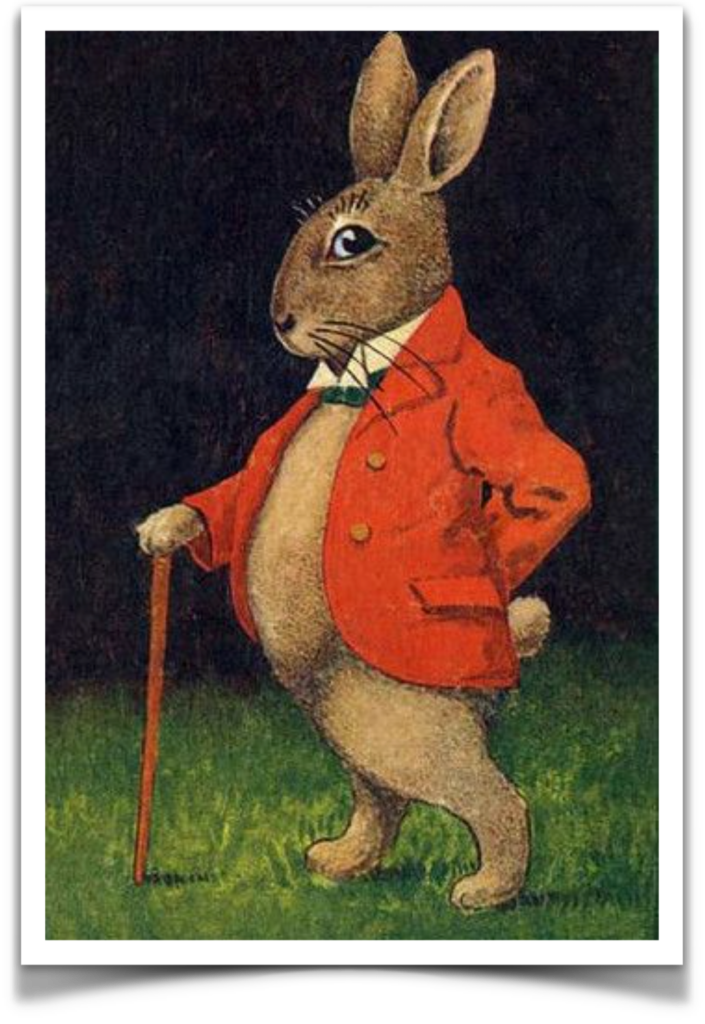
“I am not going to no town,” said Squirrel firmly.
“You mean you are not going to ANY town,” said Hare. “If you’re not going to NO town, Squirrel, that means you ARE going.”
“That’s ridiculous,” said Squirrel. “You’ve gotten mixed up, Hare.”
“Up is what I most certainly have not gotten mixed,” sniffed Hare. “I am merely pointing out the semantic consequences of a double negative, Squirrel.”
“What’s a double negative?” asked Squirrel, who was always curious.
“It’s when you say there isn’t something,” said Hare, “then you say the something that isn’t, isn’t. So that means that it is.”
Squirrel cocked his head sideways at Hare, and his tail curved in a particular way that meant “you’re being silly.”
“I don’t think you get it,” said Hare. “Maybe we should go see Beaver and borrow one of his books. I’m sure he has one that explains about double negatives.”
“Beaver’s books are baloney,” said Squirrel. “You could even go into triple negatives and I wouldn’t care. But let me ask you this, Hare. If you have two carrots, isn’t that more carroty than just having one carrot?”
“More carroty?” blinked Hare.
“Yes,” said Squirrel, “exactly. Then if you have three carrots, Hare, that’s even more carroty.”
“Carroty?” asked Hare again. “I don’t quite get…”
“So you see,” said Squirrel, “that just like the more carrots you have, the more carroty it is, the more ‘noes’ you say makes it more noey.”
“I don’t think you quite understand what I’m trying to explain,” said Hare.
“Sure I do,” said Squirrel, “and what I’m telling you is that I’m not going to no town.”
Hare shook his head. “Town or no town,” he said, “I’m going to get some carrots, Squirrel.” And he did.
